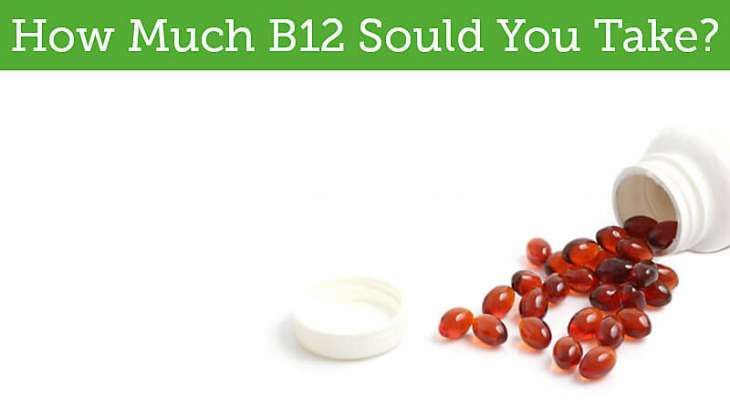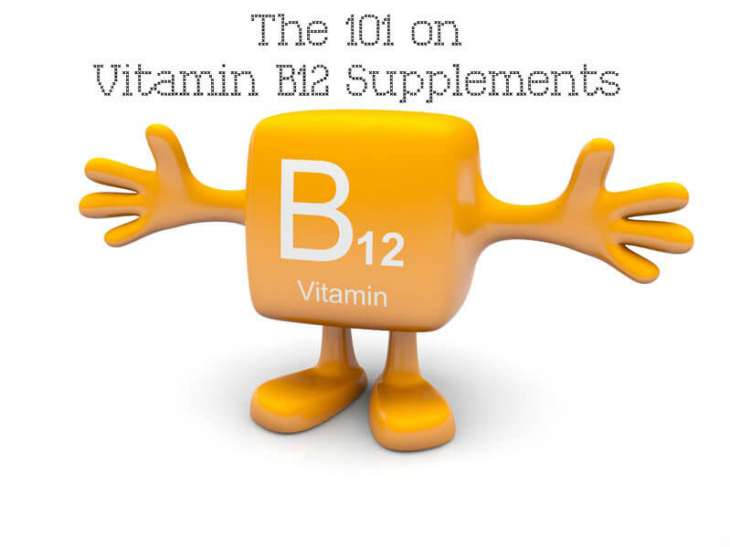Vitamin B12 Supplements: Benefits, Side Effects, and Dosage Information
Vitamin B12 (Cobalamin) is a water-soluble vitamin naturally found in food, containing the mineral known as cobalt. Proper formation of red blood cells requires Cobalamin, the most well-known member of the vitamin B complex.
B12 works in tandem with B9 to assist iron in creating hemoglobin, an oxygen-carrying protein.
As many nootropic users are aware, the benefits of vitamin B12 include supporting DNA synthesis and improving neurological function. If boosting mental acuity is a priority, B12 is an excellent addition to your daily nootropic stack. It’s not exactly an alternative to Adderall by itself, but it’s a safe and effective nootropic that is generally side-effect free.
You can purchase vitamin B12 supplements over the counter or obtain them by prescription in case of a deficiency. For those who receive an inadequate amount in their daily diets, vitamin B12 supplementation may be necessary to maintain a sharp mind.
In today’s article, we’ll explore the finer points behind using B12 for boosting cognitive function. We’ll outline the most important vitamin B12 benefits, all possible side effects of vitamin B12, as well as the recommended B12 dosage.
Types of Vitamin B12 Supplements
The three most important types of B12 to be concerned with are Cyanocobalamin, Methylcobalamin, and Hydroxocobalamin.
Cyanocobalamin, the human-made form of B12, is the least useful for cognitive function among the three. Unfortunately, it’s also the most common B12 supplement on the market. Cyanocobalamin’s bioavailability is less than that of its counterparts. Additionally, it’s not as effective in maintaining nervous system health when compared to other forms of B12.
Users typically prefer Methylcobalamin and Hydroxocobalamin B12 supplements for their high bioavailability and cognitive enhancement effects.
Vitamin B12 and Choline Supplements
Keep this in mind: It’s common to associate B vitamins with various types of choline, but they’re not the same.
Choline bitartrate, CDP-choline, and Alpha GPC are vastly different than B12. However, acetylcholine does work synergistically with B12 to support nervous system maintenance. The nootropic community would collectively agree that an effective choline source must accompany every quality stack.
If you’re contemplating buying B12 but haven’t decided on a source of choline yet, this post on choline supplements can help you choose which one to use.
Vitamin B12 Benefits
Vitamin B12 benefits the body and mind in many ways. Because of its relative safety, it’s often referred to as a gateway smart drug.
It’s a good beginner nootropic to use in conjunction with choline, or with caffeine and L-Theanine to improve focus and alertness. Thousands of recent studies on the benefits of vitamin B12 revealed similarly promising results. Here is a short list of those results. These are possibly the most notable Cobalamin benefits for nootropic users:
- Assists in the proper formation of red blood cells.
- Essential in cellular energy production and DNA synthesis.
- Improves neuroplasticity by serving as the chemical building block for new synaptic connections.
- Ability to boost brain function in users with cognitive deficits.
- Significantly improves “visual accommodation,” the eye’s process of changing optical power to maintain focus on objects of varying distance. Ideal for late nights in front of a computer.
- Aids in melatonin synthesis to help regulate circadian rhythm and improve sleep quality.
- Can improve mood or relieve symptoms of depression related to a B12 deficiency.
The three big ones on that list are mood, sleep quality, and neuroplasticity (neurogenesis). Each time you encounter a cognitively challenging task (a mental stimulus), the brain forms new synaptic connections.
The ability of vitamin B12 (Cobalamin) to aid in neuroplasticity allows you to learn new tasks and remember information more quickly. Vitamin B12 supplementation can also relieve perceived feelings of stress, anxiety, and depression caused by a B12 deficiency. Its ability to improve sleep quality further enhances its stress-reduction and cognitive enhancement capabilities.
These B12 benefits are vital for creating a free and clear mind, allowing you to find your tunnel vision focus more quickly.
When a B12 deficiency prevents your brain from operating at maximum capacity, lack of focus and mental energy are common. As you know, brain fog and lethargy are the kryptonite of productivity, and vitamin B12 supplements can keep you feeling sharp and energized.
Vitamin B12 Dosage for Cognitive Function

Many people ask, “How much vitamin B12 should I take?”
The recommended vitamin B12 dosage depends on the user’s diet. Since many foods contain B12, there’s a good chance you’re already getting a fair amount through regular eating habits.
However, if you’re deficient, vitamin B12 dosing tends to hover around 1,000 mcg (1 mg) per day. This dose is the supplemental amount of B12, not including what you’re consuming through food. You can also split the intake into multiple doses throughout the day, but this is not mandatory. Dividing your B12 dosage may not provide additional benefit, and may be more trouble than its worth.
Nootropic uses often experiment with higher vitamin B12 doses to see if it further improves cognitive function.
This experimentation is entirely up to you. Your body flushes excess B12 that it does not absorb without any adverse side effects. Marginally increasing the dosage is considered a safe practice.
Vitamin B12 Side Effects
Vitamin B12 side effects are very rare. When orally consumed, side effects are almost non-existent, even when administering large doses of B12. This supplement is even considered to be “likely safe” for women who are pregnant or nursing when ingesting standard doses.
Final Thoughts on Vitamin B12 Supplementation
A quality vitamin B12 supplement can be a great addition to any nootropic stack. It’s a cost effective, entry level smart drug that can make a world of difference in those with a B12 deficiency.
[catlist excludeposts=this template="div" conditional_title_tag="h6" conditional_title="Other vitamins" id="131" tags="using"]

